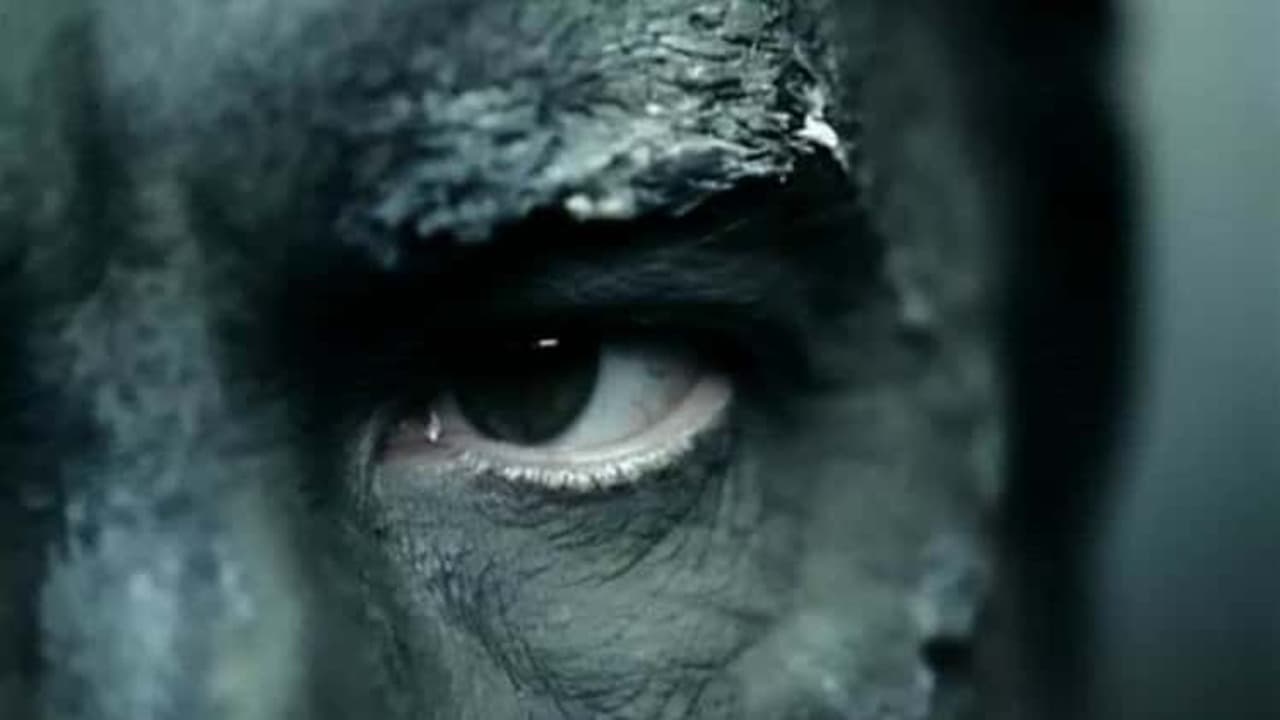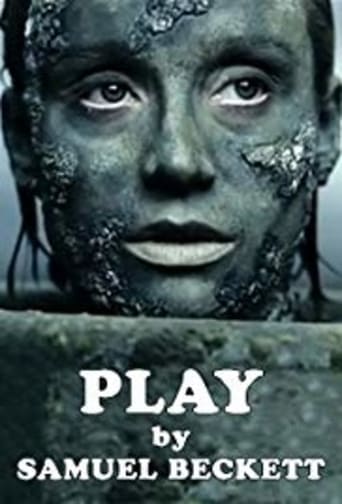

"Play" is a 15-minute short film based on a work by Samuel Beckett. The director is the late Anthony Mingella and he cast a trio of actors that he worked with on several occasions again: Rickman and Stevenson on "Truly Madly Deeply" for example and Kristin Scott Thomas on "The English Patient" of course. Rickman looked a bit like Geoffrey Rush in here I thought. Anyway, we see a world full of urns with heads coming out of these. These heads keep constantly rambling and shouting, but only talk to themselves, not to each other. The makeup work was maybe the best thing about this little movie. It added a nice atmospheric touch to it. i cannot say I was too amazed by the contents however. I did not care for any of the 3 main characters to be honest, neither in a positive nor negative way, and that's usually the worst that could happen. Also, if you are not an English native speaker, make sure you get subtitles, because the dialogs are incredibly fast from start to finish. Final verdict: not a great watch.
... View MoreThis is a filmed play; one must judge it as such. Minghella's rapid reaction camera takes the place of stage direction for a spotlight. But that's about it. The full 16 minutes (8 mins of script with the instruction to repeat) are played out with little intervention from the director, save cutting or inter-focusing between the three talking heads and mixing head-shot with super-closeup.The three characters live out a collapsing love-triangle. Is it happening now? Are they living over what has already happened? Is this a dramatised overview of what always happens? These are all valid questions as the script is delivered, overlapping, at barely digestible speed. Juliet Stevenson (the mistress) is the most interesting, allowed a full expressive range throughout her role, including a flash-dispatched orgasm. Most hilarious is Rickman's man-at-the-centre (literally as well) who retreats into talk of tea when he's not got the hiccups - an important element, this impediment, as it has the same worth of content given the monotone delivery. Kristin Scott-Thomas' trademark 'disinterest' makes up the trio.I like Minghella's top-n-tail affectation of the rushes cards, which brings into relief the 'play' suggestion of the title. Is this a record of the consequential comeuppance coming for the characters? Or is it simply as valid a circumstance as the next for working out the old rite of cheating relations? 6/10
... View MoreThis is a brilliant work, and for me the highlight of the Becket on Film Series. "Play" tells of the horror, the purgatory of broken human relationships. Yes it is banal, yes it is repetitive, but that is precisely the point. The menage a trois depicted has trapped each of the three characters in an endless hell, the same thoughts over and over, the same self-justifications, the same loss. No one can hear the others. Mingella brilliantly shows us in cinema what could never be shown on stage, that this pain goes on forever, to the end of life and even into death. In showing the three urns surrounded by hundreds of others, we see everyone else trapped hopelessly within the tyranny of their private griefs. The most challenging, the most arresting short film i have ever seen. Highly recommended.
... View MoreOne would think that three people sitting in urns, not moving, telling the same story twice would be dull and boring, but its not. Using cross cutting and cinema tricks to make what on stage is a very static, very dull and over rated piece of twaddle, Anthony Minghella had fashioned an interesting and quite stimulating piece of film. What the point of it all is or is not I will leave up to the viewer. The real achievement of this film is how it makes essentially a play where nothing physically happens into a movie with motion and movement and excitement (of a sort). Film students would be hard pressed to find a better example of what it means for the cinema to be in motion.
... View More